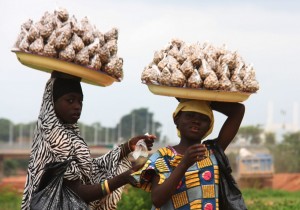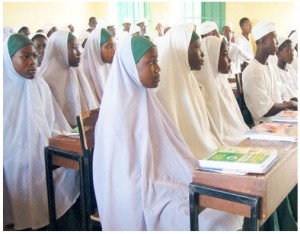
At a one-day advocacy meeting on the promotion of girl-child education held in Kaduna, North West Nigeria, on Tuesday, with officials of the government at all levels and other critical stakeholders, the Executive Secretary of the commission, Professor Rashid Aderinoye, lamented the poor enrolment of girls in primary and secondary schools, especially in northern Nigeria, which he said was unacceptable.
He, however, stressed the importance of educating the girl child for national development and family integration.
According to him, the nomadic girl-child in Northern Nigeria is often marginalised due to cultural factors and religious misinterpretations, which he said must be addressed for the development of the nation.
Declaring the meeting open, Governor Mukhtar Yero of Kaduna State called for proper resettlement of Fulani herdsmen to enable them have better education like their counterparts in other parts of the country.
“My administration will soon set up a directorate on Nomadic Education Programme as part of its responsibility of ensuring that every citizen of the State is guaranteed equal access to educational opportunities.
“Kaduna State has established a total number of 270 nomadic schools with a total of 27,166 pupils’ enrolment manned by 899 teachers spread across the 23 Local Government Areas of the State to compliment the Federal Government’s effort,” Governor Yero.
Many young girls, particularly Fulani girls in northern Nigeria, are not in school. Many of them are often seen during school hours hawking along the streets while others are married off at tender ages.
Although the nomadic education programme, which started officially in November 1986, is said to be fairly successful, a good number of the Fulani have not embraced the programme despite the huge amount of funds the government had committed into the programme.
This has been attributed to the fact that the nomadic society is still tied to its past where women are accorded cultural responsibilities, which if they were educated would not be performed.
For them, a woman is supposed to stay at home and look up to her husband for everything; food, shelter and security
The main purpose of this advocacy meeting is to explore and examine the possibilities of collaboration and partnership amongst identified major stakeholders on the need to accelerate action and initiatives on the promotion of girl-child education among nomads especially in Northern Nigeria.
Participants at this meeting stressed the need for both the Federal and State governments to implement the United Nations declaration on the girl-child which stipulates that every child irrespective of gender must be given equal access to education.
The need for the girl-child education among the nomadic pastoralists is not only imperative but it is indispensable for the socio-economic development of Nigeria.
It is expected that at the end of the meeting, the stakeholders would improve advocacy for the promotion of girl-child education, integrate them into special projects and raise awareness among policy makers on the particular needs of these children.


